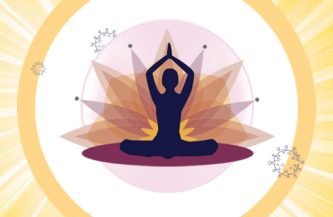100 Episodes of Mann Ki Baat: Tapping into Nari Shakti

By making women’s empowerment one of the central themes of his radio programme, the Prime Minister has set the standard for others to follow
In 2014, the Prime Minister of India started a useful radio-based programme called “Mann ki Baat” (MKB) to “establish a dialogue with the citizens on issues of day-to-day governance”. In this programme, he speaks on many contemporary issues such as government policies and reforms, India’s cultural legacy and diversity, sports, extraordinary citizens, etc. Indian women form one of the central themes of his speeches.
PM Modi conceptualises woman as a divine entity. In his address, he echoes the eternal concept of “Shakti” or feminine divine energy of the Indian civilisation according to which women are manifestations of power, wisdom, and protection. The PM wants to increase the number of empowered women. He perceives the Earth as “Mother” and wants to heal the mother by cutting down on urea fertiliser use. He worships “Ma Duga” or “Ma Shakti” and referring to an ancient text, Skanda Purana, he says that one daughter is equivalent to ten sons. He thinks that in Indian society, “women have been accorded the status of ‘Shakti’…woman power binds society as a whole, and the family as a whole, on the axis of unity and oneness”. He emphasises that Indians are part of a tradition where one of the ways of identifying men was by the women they were connected to: Yashoda-Nandan, Kaushalya-Nandan, Gandhari-Putra. He refers to daughters as “Lakshmi”, and as harbingers of fortune and prosperity and encourages the organisation of public functions in the village, towns, and cities to honour them.
Expressing his deep concern regarding India’s reputation for discrimination against the girl child, he called for a mass movement on “Beti Bachao, Beti Padhao (Save daughter, educate daughter)” and discussed it at length in about eight episodes. In other episodes, the Prime Minister has praised women characters from history to raise the self esteem of women today. He has spoken of Lopamudra, Gargi, and Maitreyee who composed hymns of Veda; drew inspiration from the spiritual legacy of women devotees like Akka Mahadevi or Meerabai or the governance of Ahilyabai Holkar or the valour of Rani Lakshmi Bai. He has spoken of the women brave-hearts who fought heroically against the Mughals and the British. He draws attention to the fact that during the Chola period, women were also to be found on navy warships. Referring to Indian-American astronaut Kalpana Chawla, he says that there is no upper limit to women’s power.
In several episodes of MKB, PM Narendra Modi has celebrated Indian women’s performance in sports at the international level. Through MKB, he has recognized women’s participation in the armed forces to protect the country. He introduced women fighter pilots, women lieutenants, and a women-only platoon under a UN peacekeeping mission and congratulated six Indian women commanders who circumnavigated the globe for more than 250 days on board the INSV Tarini. He has also expressed his happiness about the increase in the number of women police personnel in recent years.
The Prime Minister equally raises concerns over women’s health, educates them on PM Safe Motherhood Campaign, and urges people to encourage women to participate in health and finance schemes. With the intention of delivering justice to women, he has spoken about banning child marriage, criminalizing triple talaq, increasing the period of maternity leave, and passing a criminal amendment Bill to give strict punishment to rapists. In some episodes, he makes women aware of social security programmes like Mantri Suraksha Bima Yojna, Jeevan Jyoti Bima Yojna, or Mudra Yojna. The Prime Minister is also generous in acknowledging women’s entrepreneurship and their role in the Indian economy at present time. He amplifies case studies of women’s self-help groups or ordinary women who are providing extraordinary services to Indian society. He speaks proudly about the achievements of girl children. While he often addresses poor and destitute women from remote corners of India, he has also recognised the contribution of foreign-born women (Sister Nibedita, Jagat Tarini, and Jadurani Dasi) in their efforts to spread the philosophy and culture of India abroad. While sometimes he has expressed Indian mothers’ concern about children falling into the drug trap, at other times he has given tips to mothers on raising children. At times, it appears as if he thinks like a woman.
Leaders set the standards and common citizens follow them. That is why it is important how India’s most influential leader thinks, speaks, and acts on women’s issues. Through MKB, he promotes the image of powerful women and spreads positive messages about them. His message has an impact on the common masses. The obvious example is the social media response to his call for “selfie with daughter”. Since his election as Prime Minister, many flagship social welfare programmes have been launched, such as Pradhan Mantri Ujjwala Yojana, Pradhan Mantri Jan Dhan Yojana, Jal Jeevan Mission and Swachh Bharat Mission, which have helped elevate the lives of millions of women. The NFHS (2014-15 and 2019-21) shows that there has been phenomenal improvement in educational attainment, the use of menstrual hygiene products (57 per cent to 78 per cent), the use of mobile phones (46 per cent to 54 per cent ), and owning a bank account (from 53 per cent to 80 per cent) among women in a five-year period. During this time, we also found that there is a substantial decline in female excess deaths under age five and a complete elimination of gender disparity in child immunisation. The NFHS data also shows an improvement in the sex ratio at birth at the national level (916 to 928 per 1000 boys aged 0-6) and in states like Haryana and Punjab. This is worth celebrating given this period also includes the Covid-19 pandemic period of 2020-2021.
There are some expectations from the Prime Minister. Indian women wish for more employment opportunities, a domain where India’s progress is not still satisfactory. In addition, women in India want a faster judicial process to respond to crimes against them. The Prime Minister can take special measures in these two domains by talking about them on MKB and implementing various policies.
Author: Nandita Saikia





